Innovative Irrigation Helps Kurdistan Farmers Combat Severe Drought
Amid severe drought in Kurdistan's Raparin region, farmers are using innovative "rain hose" and drip irrigation to save water and crops. The KRG is aiding this climate adaptation by building dams and rainwater ponds to combat growing water scarcity.
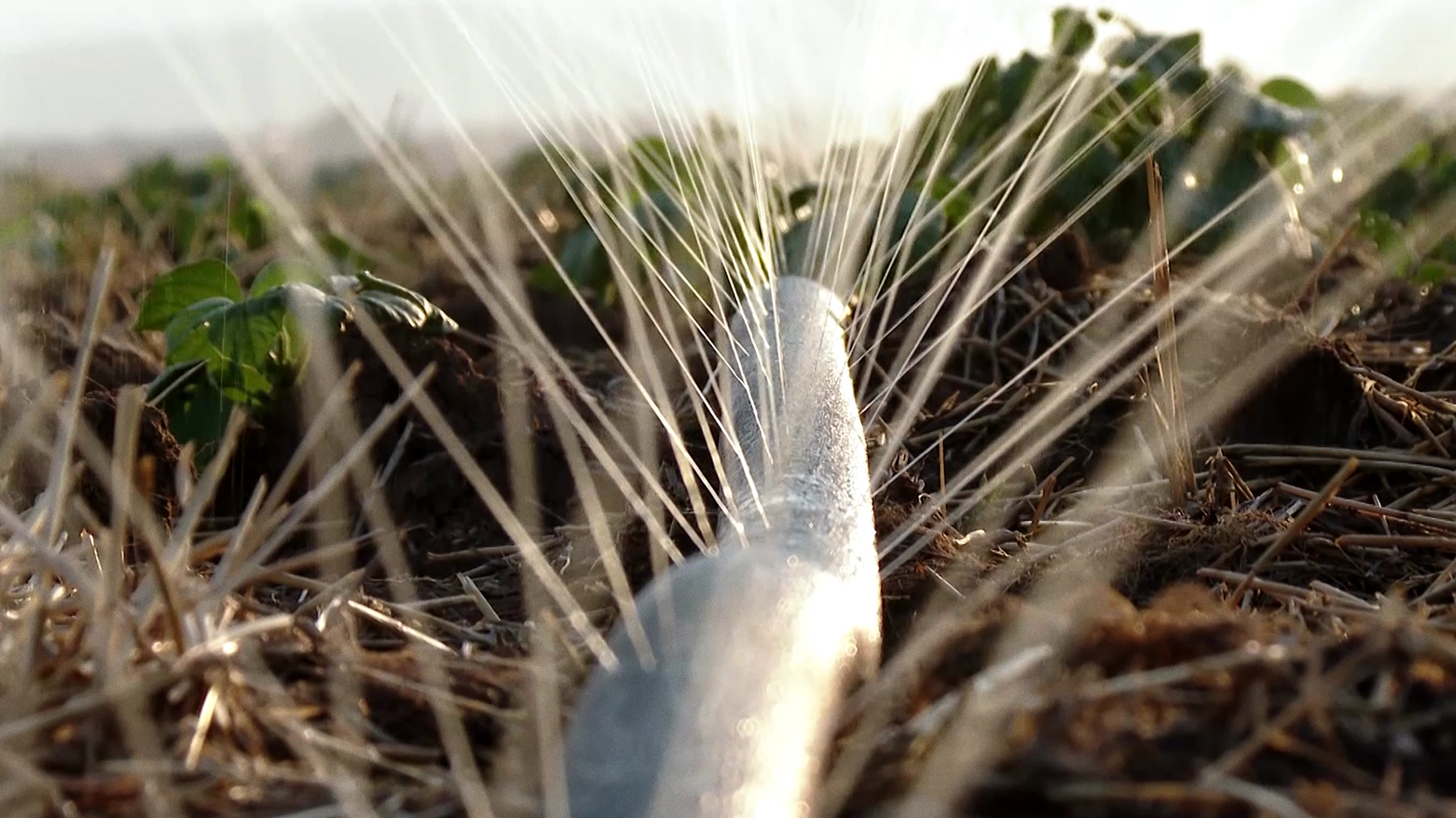
ERBIL (Kurdistan24) – Faced with the stark reality of once-mighty springs running dry due to persistent drought and low rainfall, farmers across the Raparin Administration’s Bitwen Plain are embracing innovative, water-saving irrigation technologies to sustain their crops and adapt to the mounting pressures of climate change.
The dramatic impact of water scarcity is vividly illustrated at Kani Qulka, one of the region's largest springs.
This vital water source, which historically irrigated thousands of donums of agricultural land supporting crops like tobacco, tomatoes, sunflowers, and various vegetables, has been so severely diminished that it can no longer provide drinking water even for local animals.
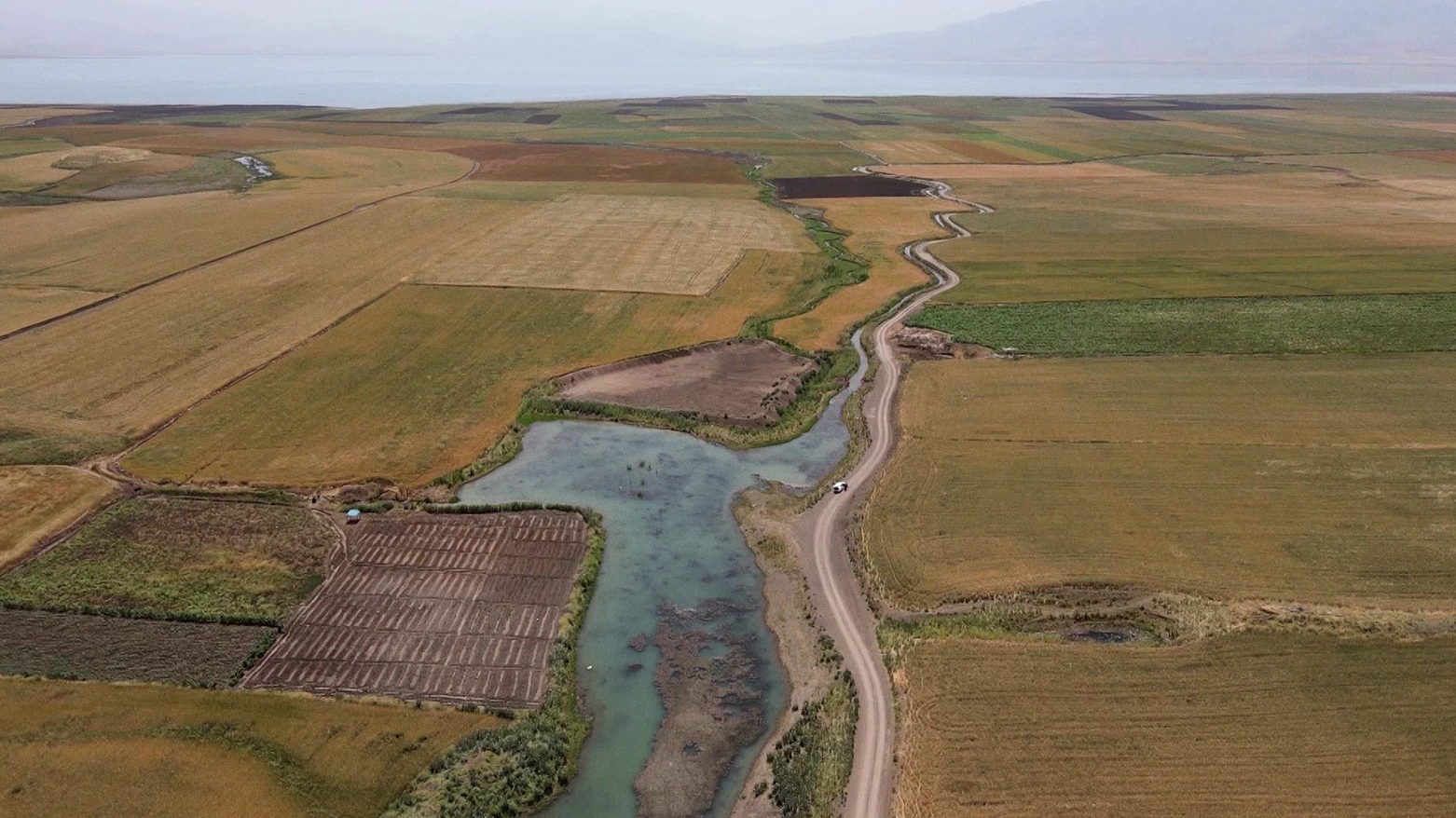
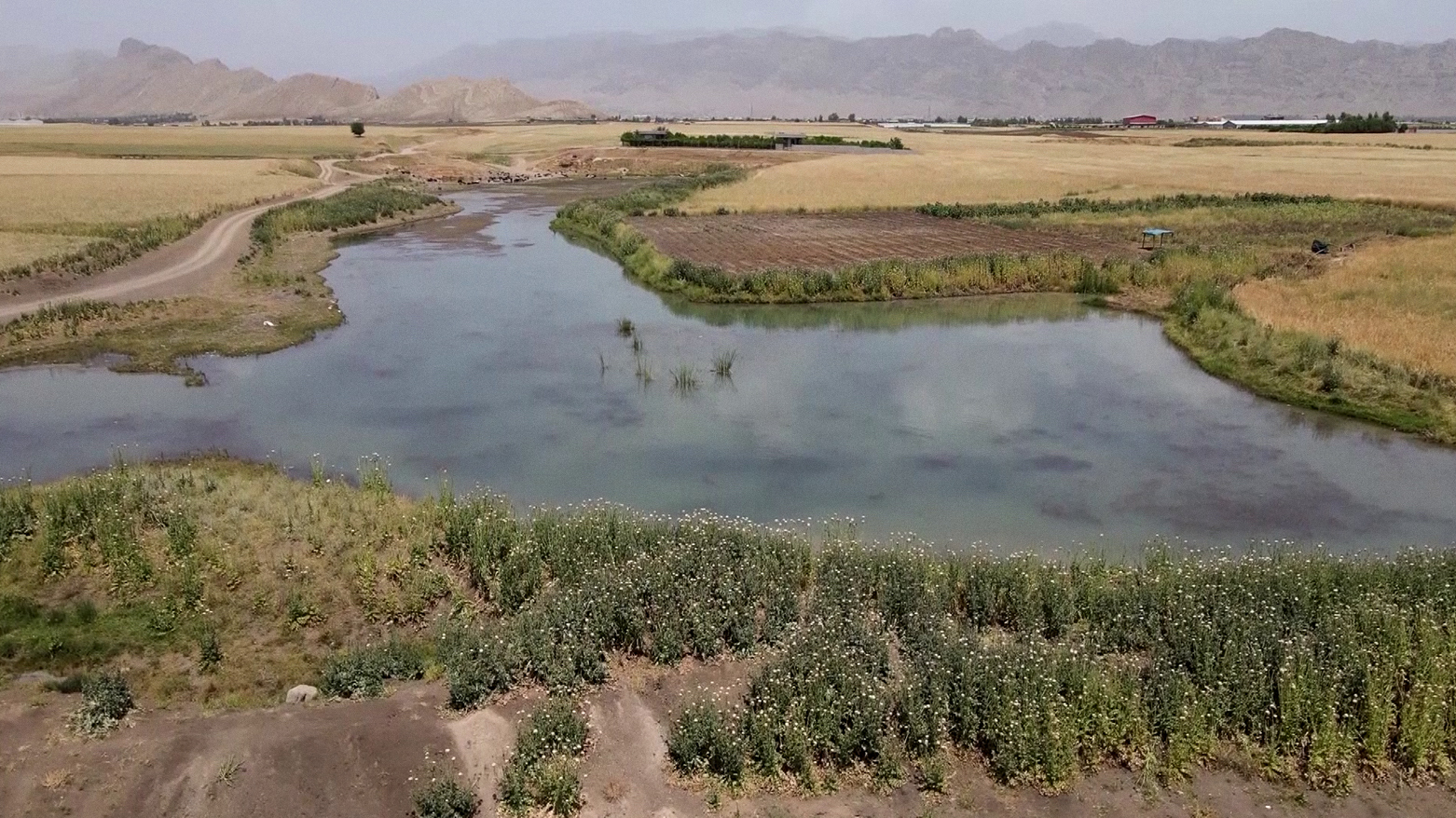
This critical situation has compelled farmers to abandon traditional methods and adopt more efficient systems that maximize every drop of water.
A particularly effective new method gaining traction is known locally as "sonde barane," or "rain hose." This technology, newer than both drip and sprinkler systems, consists of a thin hose perforated with small holes that spray water up to three meters on either side, evenly irrigating crops while consuming significantly less water.
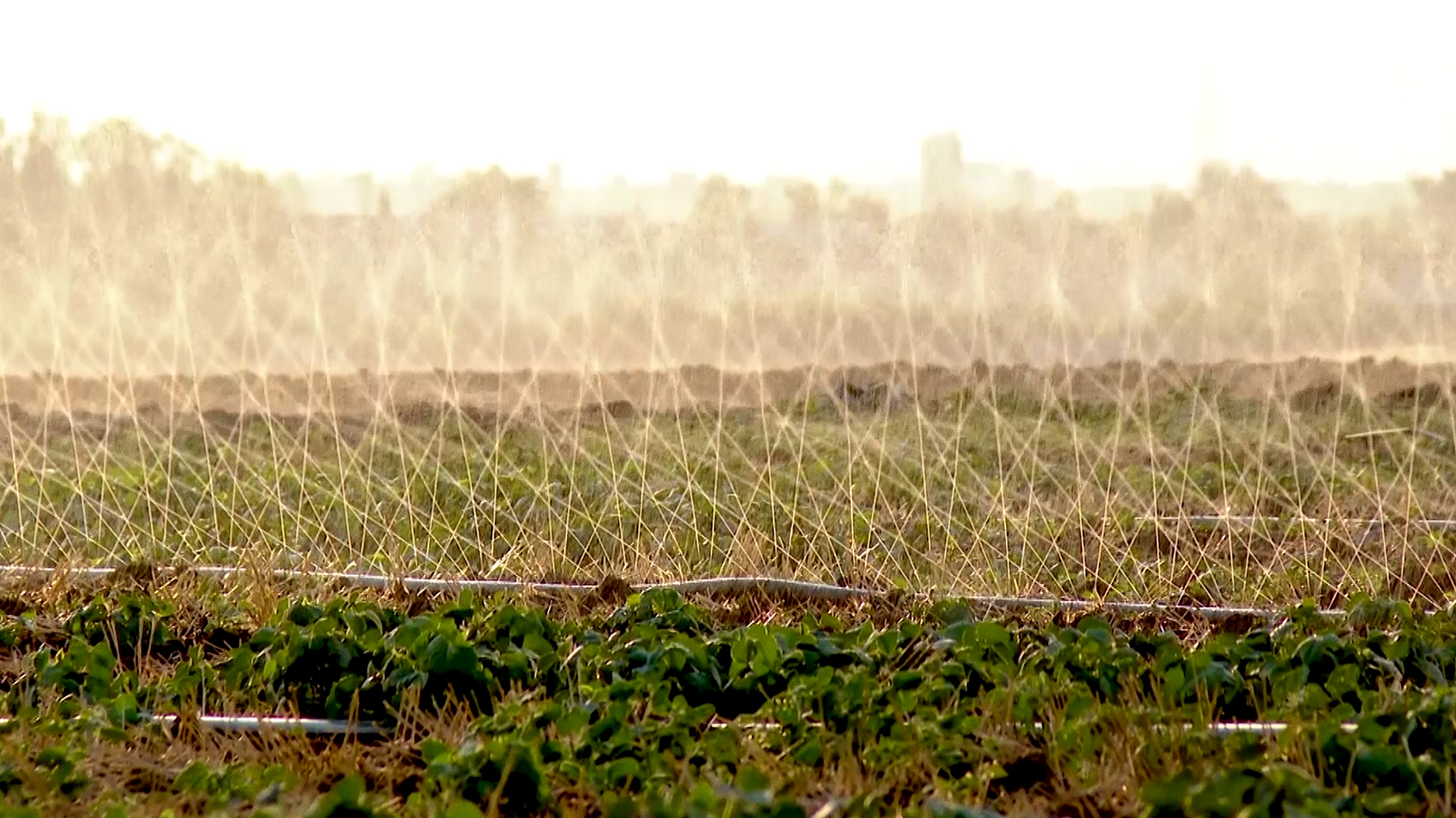
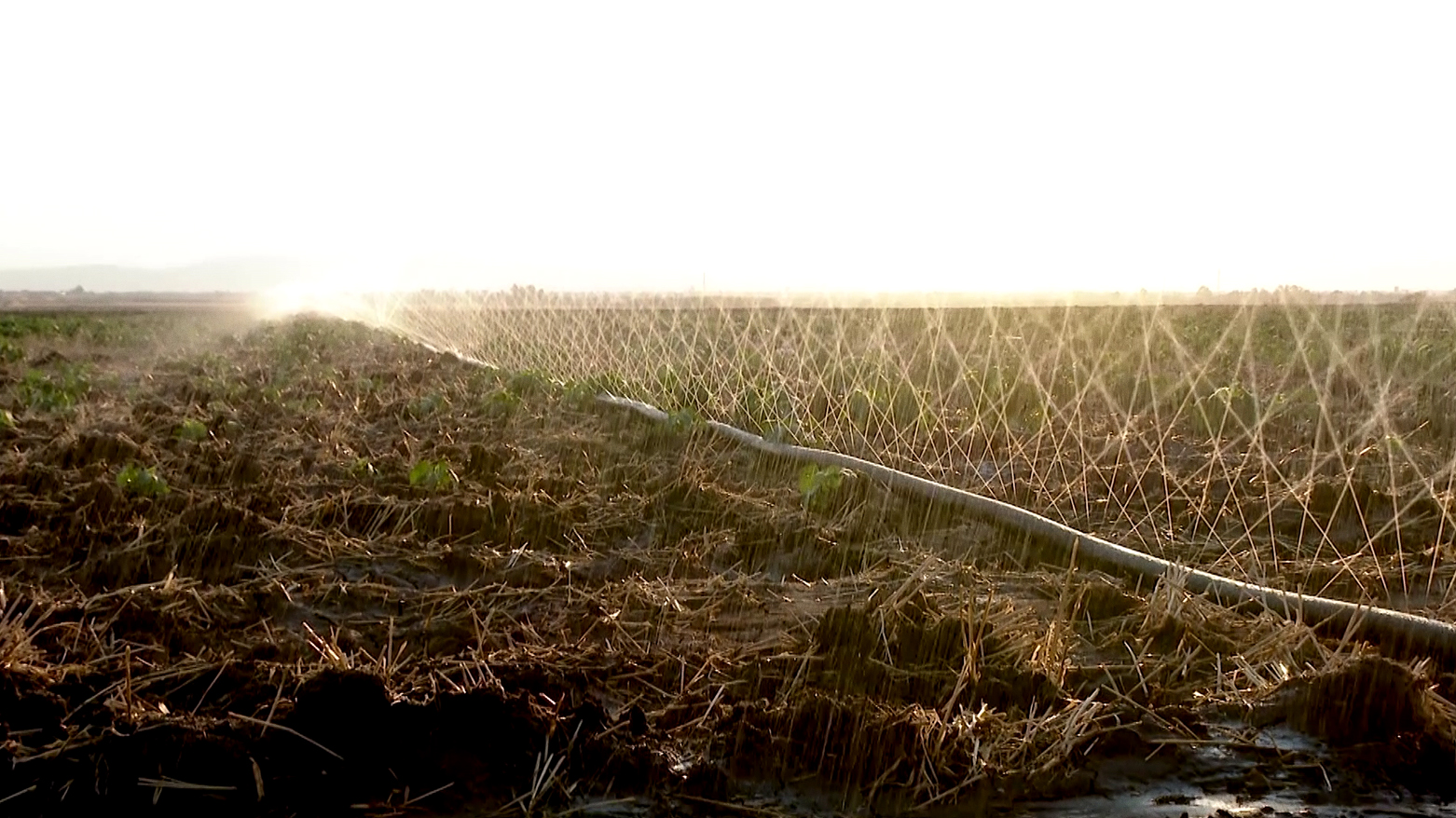
Farmers report that this system not only conserves the precious resource but also saves considerable time and labor.
Ali Arsalan, a local farmer, explained his decision to switch to the rain hose in an interview with Kurdistan24.
"Our crops need three waterings, no more, provided there is water," he said. "Some of us used sprinklers, but it wasn't enough, so the produce was of different sizes; not everything grew at the same rate. That's why we thought of installing the rain hose."
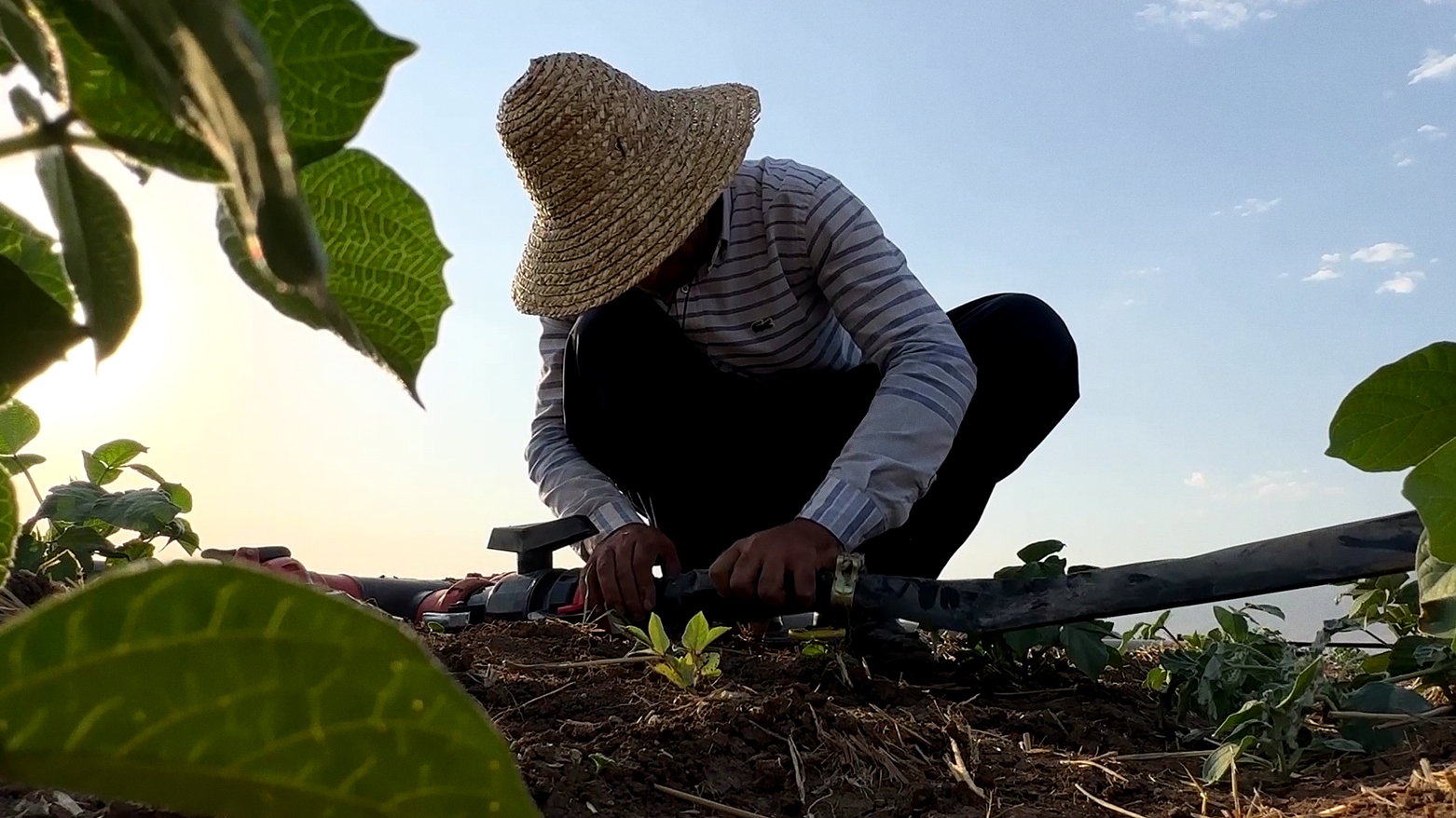
He highlighted the system's affordability, noting that a 100-meter length of hose costs about 20,000 Iraqi dinars. "This year, we have cultivated using this hose, and we thank God that our yield has been very good," Arsalan added. "The rain hose system requires less water, uses less water, and water is not wasted."
The efficiency of this new system is transforming farm management. Kawa Qadir, another local farmer, told Kurdistan24 that the technology makes it possible for a single person to manage large tracts of land. "The system easily irrigates 30 to 40 donums of agricultural land," he said. "Only one person controls the irrigation, which previously required two to three people."
This contrasts sharply with traditional furrow irrigation, which he described as "very difficult and cannot be done by one person alone." It is estimated that where a farmer once used 100 cubic meters of water for one donum, the new methods can accomplish the same task with one-fifth less water.
Alongside the rain hose, drip irrigation has become an essential tool, particularly for orchard owners who have been using it for years to cope with water shortages.
By laying hoses under trees, they can deliver water slowly and directly to the root systems. Bryar Sabir, a farmer in the area, detailed the precision of this method to Kurdistan24.
"Currently, the best method of irrigation is drip, but it varies from one orchard to another," he explained. For young trees, a targeted half-hour of watering every few days is sufficient. "But for a tree that is about 9 years old, we need to make the water basin larger and wet the entire area around the tree... with this system, we deliver water down to the roots, which is why the trees grow better."
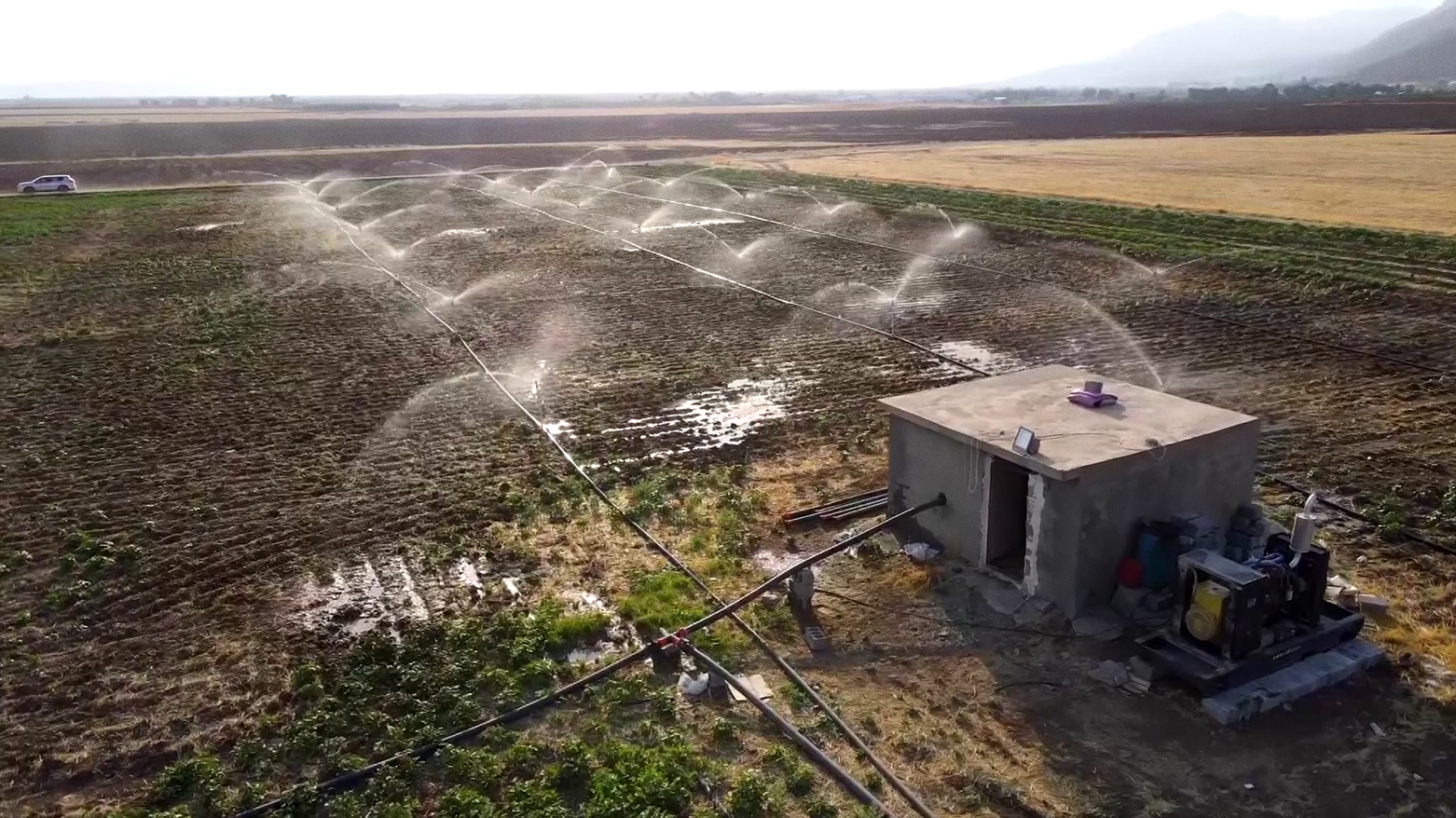
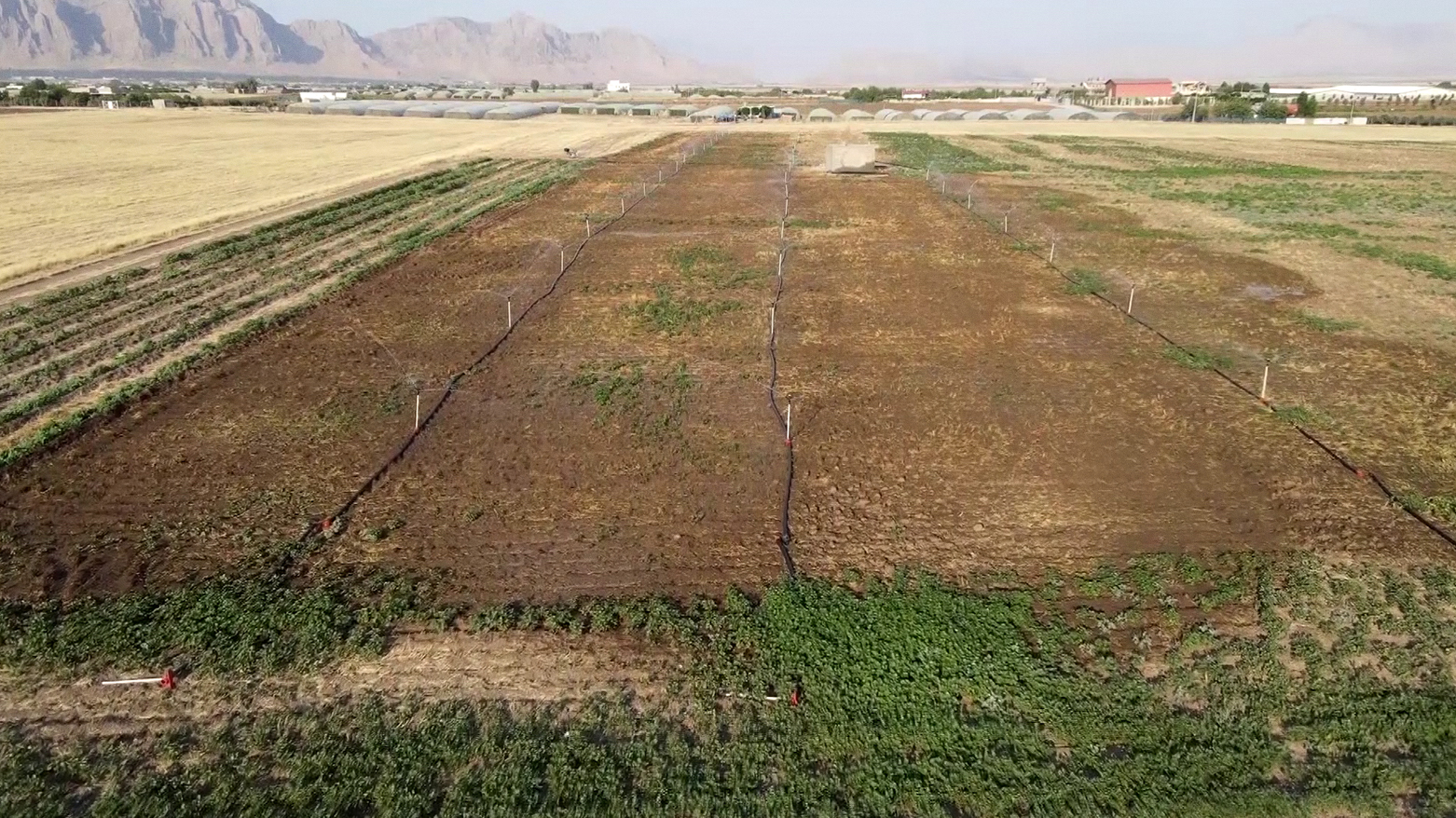
The shift at the grassroots level is being supported by strategic government action. Recognizing the long-term threat of climate change, the Kurdistan Regional Government has invested heavily in water infrastructure over the past five years.
An allocation of 265 billion and 700 million dinars has funded the construction of nine new dams across the Kurdistan Region. In parallel, a project to build 126 ponds for rainwater harvesting is underway. To date, 23 of these ponds have been completed and are collecting water, with work continuing on the remainder.
Kurdistan24's correspondent, Aras Amin, contributed to this report.
